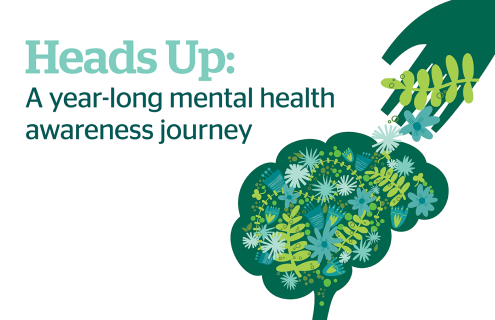
Each month since May (Mental Health Awareness Month), Dartmouth Health, expert panelists and its partners at the New Hampshire Union Leader and Seacoast Online have been examining different groups experiencing unique challenges to their mental health. This month, we turn to the world of school athletics, the unique stressors student-athletes face and how something like an injury can upturn an athlete’s world.
Meghan Cramb, 23, of Merrimack, knows what that’s like. She has been a competitive student-athlete since grade school. She played soccer, basketball and lacrosse at Bishop Guertin High School in Nashua until she graduated in 2017. From there, she attended Assumption University in Worcester, Massachusetts, where she played basketball while double-majoring in biology and health science.
When her junior season came, she knew she would have her best season yet.
“I played a good amount my freshman year, my sophomore year I was a starter, and I was our second leading scorer. And my junior year I personally felt, and my coaches felt, that it was going to be an impact season for me,” Cramb said. “I was ready to have a breakthrough season. I was feeling good. I was at my best conditioning.”
But these plans changed dramatically when she tore her ACL during a pre-season practice.
“I felt it instantly. I can’t even describe it. I fell on the floor. It was excruciating pain, basically,” Cramb said. And she suspected the worst.
But with the physical pain would soon come the unexpectedly complex and multifaceted emotional and mental challenges that sports psychologists say are all too common with injured athletes.
“It was really rough, for sure. I wouldn’t say I was depressed, but what you kind of go through… is almost like the stages of grief,” Cramb said.
Mark Hiatt, a staff psychologist and the director of the Sport Psychology Program at Dartmouth College Health Services, says young athletes often tie their whole identities around their sports and their ability to help carry their teams to victory or achieve personal goals. When that ability is taken from them, often abruptly, they often undergo a period of grieving to process that loss.
“These students have worked very, very hard from the time they were in elementary school … dreaming about getting into college, playing sports in college, and with an injury like Meghan’s it’s very sudden and it can be a really powerful, loss,” Hiatt said.
He said these are moments of great challenge and great opportunity. Recovery needs to be tailored to each individual’s needs, but generally, Hiatt said, it’s important for others to acknowledge their loss, for the injured athlete to try to use this time away from the sport to broaden the scope of their identity and explore other interests, to find ways to stay connected to their team, and to look for ways where the athlete can take back some control.
“We’re all hardwired to be focused on some goals,” Hiatt said.
For Cramb, she found it extremely helpful when her coaches created an achievement board to track even the most incremental progress in her recovery, like bending her knee or pedaling the stationary bike.
In this way, many athletic trainers and physical therapists who regularly highlight and celebrate recovery milestones are often acting as unofficial mental health counselors, according to sports pediatrician Keith Loud, MD, MSc, also the physician in-chief of Dartmouth Health Children’s.
He said there is a strong interplay between mental wellness and physical health.
“Play, physical activity, and sports are among the very best ways that young people can manage stress and build mental health in addition to physical health,” Loud said. “One need only to recall the performances of Simone Biles and the Russian figure skaters during the 2021 Olympic Games to appreciate just how important the converse is true: peak athletic performance can only come when mental health is addressed and optimized.”
Cramb, Hiatt and Loud explore this and other challenges student-athletes experience and ways in which parents, teachers, coaches, trainers and others can help in a recent Heads Up webinar hosted by Dartmouth Health. It can be viewed online on our Heads Up: A Year-long Mental Health Awareness Journey web page.